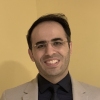Kurdistan is a unique construct in the Middle East. References to the Karda date back to the second millennium BCE. Moreover, during the Umayyad Empire, chronicles mentioned Kurds and Kurdistan. Later, the Seljuq dynasty created a province, “Kurdistan,” centered near Hamadan in the mid-12th century.
Kurdistan today spills across Iran, Iraq, Syria, and Turkey, and the South Caucasus. Despite the lack of a unified, sovereign state, Kurdistan endures in the minds of its people. Over the centuries, but especially in the last hundred years, states have sought to alter demography and erase either the Kurdish presence or identity with forced Persianization, Arabization, and Turkification.
Whether many Western diplomats realize it or not, preferencing the terms of those who subjugate the Kurds and ignoring the terms the Kurds themselves use puts Western policymakers into a straitjacket and too often obscures important dynamics of events and conflicts.
Today diplomats may talk about Iraqi and Syrian Kurdistan or the Kurds of Iran and Turkey, but a century ago, vocabulary was different. British diplomats spoke broadly about the four regions of Kurdistan: Eastern Kurdistan (in Iran), Western Kurdistan (in Syria), Northern Kurdistan (in Turkey) and Southern Kurdistan (in Iraq). The entrenchment of such vocabulary played into the efforts of Persia (later Iran) and the relatively young nation-states of Turkey, Iraq, and Syria to depict Kurdistan as four distinct segments and the Kurds as a scattered, non-contiguous, and heterogeneous nation.
While mountain chains mark the Turkey-Iraq and Iraq-Iran borders, they do not meaningfully divide the Kurdish nation.
The Kurdish terms, however, for the four regions—Rojhilat (in Iran), Rojava (in Syria), Bakûr (in Turkey), and Başûr (in Iraq)—are more akin to provinces within a contiguous nation. While mountain chains mark the Turkey-Iraq and Iraq-Iran borders, they do not meaningfully divide the Kurdish nation; trade routes and interaction continued after the imposition of borders drawn by foreign powers. Recognizing these connections explains why Kurds from different regions rally to one another’s aid in periods of adversity. Kurdish guerillas from Rojava saved Kurdish Yazidis from the Islamic State in August 2014, and peshmerga traveled from Iraqi Kurdistan to help break the Islamic State siege of Kobani. After earthquakes in 2011, 2017, and 2023, Kurdish medics crossed borders to render assistance to compatriots and today distribute products labeled “Made in Kurdistan.”
The choice of vocabulary is more pernicious when it comes to local place names. Just as Iraqi President Saddam Hussein renamed the largely Kurdish province Kirkuk as al-Taʾmim to emphasize a false Arab identity, so too do many states in which Kurds live erase Kurdish names. Just as Saddam attached Kurdish districts within the Kirkuk province to Mosul to ensure Kurds would be subordinate to Arabs wherever they lived, so too did Iran gerrymander Kurds across artificial provincial lines to ensure Kurds would be a minority in all but a rump “Kordestan” province.
The linguistic games are more pernicious at the town and village level. The Syrian government Arabized Kobani as “Ayn al-Arab” (“Spring of the Arabs”), renamed Girê Spi as “Tell Abyad” (“White Hill”), and the Turkish government renamed Dêrsim as “Tunceli” (“Bronze Fist”), among many others. For diplomats to accept the Arabic and Turkish names but ignore or remain ignorant of their original names is essentially to endorse the ethnic cleansing to which each was or is subject.
Because the strategy of cultural erasure works so well, Turkey repeated it when, in 2018, Turkish forces and their Arab proxies occupied portions of Rojava. Turkish officials, for example, renamed the Kurdish villages of Qustal Mekdad to “Seljuk Obası,” Kotana to “Zafer Obası,” and Karzila to “Dja’ar Obası.” After the Turks occupied the Afrin district, they refused to register citizens with Kurdish names unless they adopted Arabic ones. Turkey also imposed the Turkish curriculum in schools.
For diplomats to accept the Arabic and Turkish names but ignore or remain ignorant of their original names is essentially to endorse ethnic cleansing.
Within Turkey itself, authorities continue to ban use of Kurdish letters x, q, and w because they do not occur in Turkish. That would be akin to the FBI raiding homes and throwing people into prison for using an umlaut (ü).
The Kurdish presence and identity permeates the region more than a century after the Treaty of Lausanne denied Kurds an independent country. Too often, Western officials miss this aspect of protests simply because they accept at face value Arabic, Turkish, or Persian phraseology.
Many in Washington speak about how the “Woman, Life, Freedom” protests were a spontaneous movement to bring freedom to Iran. They were more than that, though. While Iranian nationalists and their American and European interlocutors identified the spark as the murder of 22-year-old Mahsa Amini in police custody, they ignored her real name: Jina. Iranian officials did so to cover up the Kurdish roots of the protest; by following their lead and refusing to call the uprising “the Jina Revolution” as Kurds do, the Western audience affirms the Islamic Republic’s chosen narrative.
The Western embrace of peshmerga (“Those Who Face Death”), the Kurdish term for the Kurdish militia, may be the exception that proves the rule. Peshmerga generally has a positive connotation in the West, in juxtaposition to the hashd al-shaabi, the largely Shi’ite militias viewed as criminal gangs beholden to Iran. While both the peshmerga and hashd al-shaabi describe themselves as dedicated to the defense of their local communities and in reality, do not differ significantly in behavior, Western officials readily embrace peshmerga but eschew their Shi’ite counterparts.
Language matters. Regional powers have tried to erase the Kurds and Kurdistan diplomatically, but they have failed to do so culturally and politically. The Kurds remain an important presence that regional powers ignore at their peril. When Western officials mimic the language of the Kurds’ oppressors, they not only choose sides, but they also miss an important component of Middle Eastern politics and society, one that will not go away.








